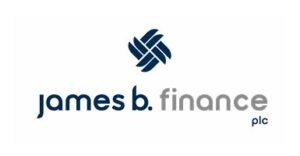Jean Boivin, Head of the BlackRock Investment Institute together with Elga Bartsch, Head of Macro Research, Vivek Paul, Senior Portfolio Strategist and Scott Thiel, Chief Fixed Income Strategist all part of the BlackRock Investment Institute, share their insights on global economy, markets and geopolitics. Their views are theirs alone and are not intended to be construed as investment advice.
We broaden our tactical pro-risk stance in light of major developments since the publication of our 2021 outlook in December: the vaccine rollout and up to $2.8 trillion of additional U.S. fiscal spending this year. Inflation expectations have risen sharply while real rates are steady in negative territory. We prefer equity over credit and turn underweight government bonds – in line with our strategic views.

Sources: BlackRock Investment Institute, with data from Refinitiv Datastream, February 2021. Notes: The chart compares the path of total U.S. retail sales during business cycle contractions with that during the Covid shock. Retail sales are rebased to 100 at the peak of each business cycle as defined by the National Bureau of Economic Research (NBER). The grey area shows the range based on cycles starting with 1969. The Covid shock line is rebased to 100 at February 2020.
Our new nominal theme – which flags a more muted response in nominal bond yields to rising inflation than in the past – has played out since last year. A 1% increase in 10-year U.S. breakeven inflation rates – a measure of market inflation expectations – has typically led to 0.9% rise in 10-year Treasury yields since 1998, we estimate. Yet since last March breakeven inflation has climbed 1.2%, and nominal yields are up just 0.5%. Inflation-adjusted yields, or real yields, have fallen further into negative territory as a result. The different nature of the Covid shock means activity has restarted much faster than seen in past business cycle recessions – and implies unusually high growth rates as a vaccine-led re-opening unfolds. The surprising jump in January U.S. retails sales may offer a glimpse of things to come. See the chart above. Fresh U.S. fiscal spending is turbocharging the restart, with recent pandemic relief payments explaining some of the retail sales boost. Further spending will ensure another wave of support, in our view.
We expect a strengthening economy, a huge fiscal impulse and rising inflation to further drive up nominal yields this year, albeit by less than in similar periods in the past. We expect central banks to lean against any market concerns around rising debt levels and to keep interest rates low for now. Yet if the narrative on high debt levels, combined with rising inflation, were to change, it could eventually undermine the markets’ faith in the low-rate regime – with implications across asset classes.
We have downgraded government bonds to underweight on a tactical basis, with an increased underweight in U.S. Treasuries. We also downgrade euro area peripheral bonds to neutral, as peripheral yields have fallen to near record lows and spreads have narrowed. We downgrade credit to neutral on a tactical horizon, as spreads have narrowed to historical lows, but still like high yield for its income potential.
Tactically, we now prefer equities over credit, as equity valuations appear more attractive. We also broaden our cyclical tilt: We are upgrading European equities to neutral, as we see room for the market to close its valuation gap versus the rest of the world with the restart becoming more entrenched. Yet the slow vaccine rollout and more muted fiscal support weigh. We debut an overweight call on UK equities in the wake of Brexit. We stay overweight U.S. and emerging market (EM) equities, and underweight Japan, where we expect lower risk-adjusted returns.
Over a strategic horizon, we also prefer equities over credit. We turn underweight credit due to rich valuations and are now modestly overweight equities. This preference stems from incorporating the effects of climate change in our long-term expected returns. We see developed market equities best positioned to capture the opportunities from the climate transition – particularly on a sector level where we see material effects on expected returns. Equities valuations are also closer to long-term averages after factoring in historically low interest rates and an improving earnings outlook.
The bottom line: We expect our new nominal theme of stronger growth and a muted response in nominal bond yields to higher inflation to further play out, even after significant market moves. This supports our tactically pro-risk stance. A key risk is a further increase in long-term yields as markets grapple with an economic restart that could beat expectations. This could spark bouts of volatility, even though we believe the Fed would lean against any sharp moves for the time being.
Market Updates

Past performance is not a reliable indicator of current or future results. Indexes are unmanaged It is not possible to invest directly in an index. Sources: BlackRock Investment Institute, with data from Refinitiv Datastream, February 2021. Notes: The two ends of the bars show the lowest and highest returns at any point this year to date, and the dots represent current year-to-date returns. Emerging market (EM), high yield and global corporate investment grade (IG) returns are denominated in U.S. dollars, and the rest in local currencies. Indexes or prices used are: spot gold, Datastream 10-year benchmark government bond (U.S. , German and Italy), MSCI USA Index, Bank of America Merrill Lynch Global Broad Corporate Index, MSCI Emerging Markets Index, J.P. Morgan EMBI index, Bank of America Merrill Lynch Global High Yield Index, the ICE U.S. Dollar Index (DXY), MSCI Europe Index and spot Brent crude.
Market backdrop
U.S. 10-year Treasury yields hit the highest levels in nearly a year. Nominal yields have been climbing since September, but the magnitude has lagged that of the rise in inflation expectations during the period. Inflation-adjusted yields have been stable in negative territory – in line with our new nominal theme. U.S. stocks hit new high on fiscal stimulus hopes. Crude oil prices rose to the highest levels in over a year as a rare cold snap hit oil production in Texas, the biggest oil-producing state in the U.S.
Week Ahead
- February 22nd: Germany’s ifo Business Climate Index
- February 23rd: U.S. consumer confidence
Sentiment data in the U.S. and Europe could shed light on the status of the activity restart. U.S. consumer confidence data could further bolster the expectation for a forceful restart, after January’s retail sales data rebounded sharply after households received additional pandemic relief payment.
BlackRock’s Key risks & Disclaimers:
This material is not intended to be relied upon as a forecast, research or investment advice, and is not a recommendation, offer or solicitation to buy or sell any securities or to adopt any investment strategy. The opinions expressed are as of Feb 23rd, 2021 and may change. The information and opinions are derived from proprietary and non-proprietary sources deemed by BlackRock to be reliable, are not necessarily all-inclusive and are not guaranteed as to accuracy. As such, no warranty of accuracy or reliability is given and no responsibility arising in any other way for errors and omissions (including responsibility to any person by reason of negligence) is accepted by BlackRock, its officers, employees or agents. This material may contain ’forward looking’ information that is not purely historical in nature. Such information may include, among other things, projections and forecasts. There is no guarantee that any forecasts made will come to pass. Reliance upon information in this material is at the sole discretion of the reader.
The information provided here is neither tax nor legal advice. Investors should speak to their tax professional for specific information regarding their tax situation. Investment involves risk including possible loss of principal. International investing involves risks, including risks related to foreign currency, limited liquidity, less government regulation, and the possibility of substantial volatility due to adverse political, economic or other developments. These risks are often heightened for investments in emerging/developing markets or smaller capital markets.
Issued by BlackRock Investment Management (UK) Limited, authorized and regulated by the Financial Conduct Authority. Registered office: 12 Throgmorton Avenue, London, EC2N 2DL.
MeDirect Disclaimers:
This information has been accurately reproduced, as received from BlackRock Investment Management (UK) Limited. No information has been omitted which would render the reproduced information inaccurate or misleading. This information is being distributed by MeDirect Bank (Malta) plc to its customers. The information contained in this document is for general information purposes only and is not intended to provide legal or other professional advice nor does it commit MeDirect Bank (Malta) plc to any obligation whatsoever. The information available in this document is not intended to be a suggestion, recommendation or solicitation to buy, hold or sell, any securities and is not guaranteed as to accuracy or completeness.
The financial instruments discussed in the document may not be suitable for all investors and investors must make their own informed decisions and seek their own advice regarding the appropriateness of investing in financial instruments or implementing strategies discussed herein.
If you invest in this product you may lose some or all of the money you invest. The value of your investment may go down as well as up. A commission or sales fee may be charged at the time of the initial purchase for an investment and may be deducted from the invested amount therefore lowering the size of your investment. Any income you get from this investment may go down as well as up. This product may be affected by changes in currency exchange rate movements thereby affecting your investment return therefrom. The performance figures quoted refer to the past and past performance is not a guarantee of future performance or a reliable guide to future performance. Any decision to invest in a mutual fund should always be based upon the details contained in the Prospectus and Key Investor Information Document (KIID), which may be obtained from MeDirect Bank (Malta) plc.





